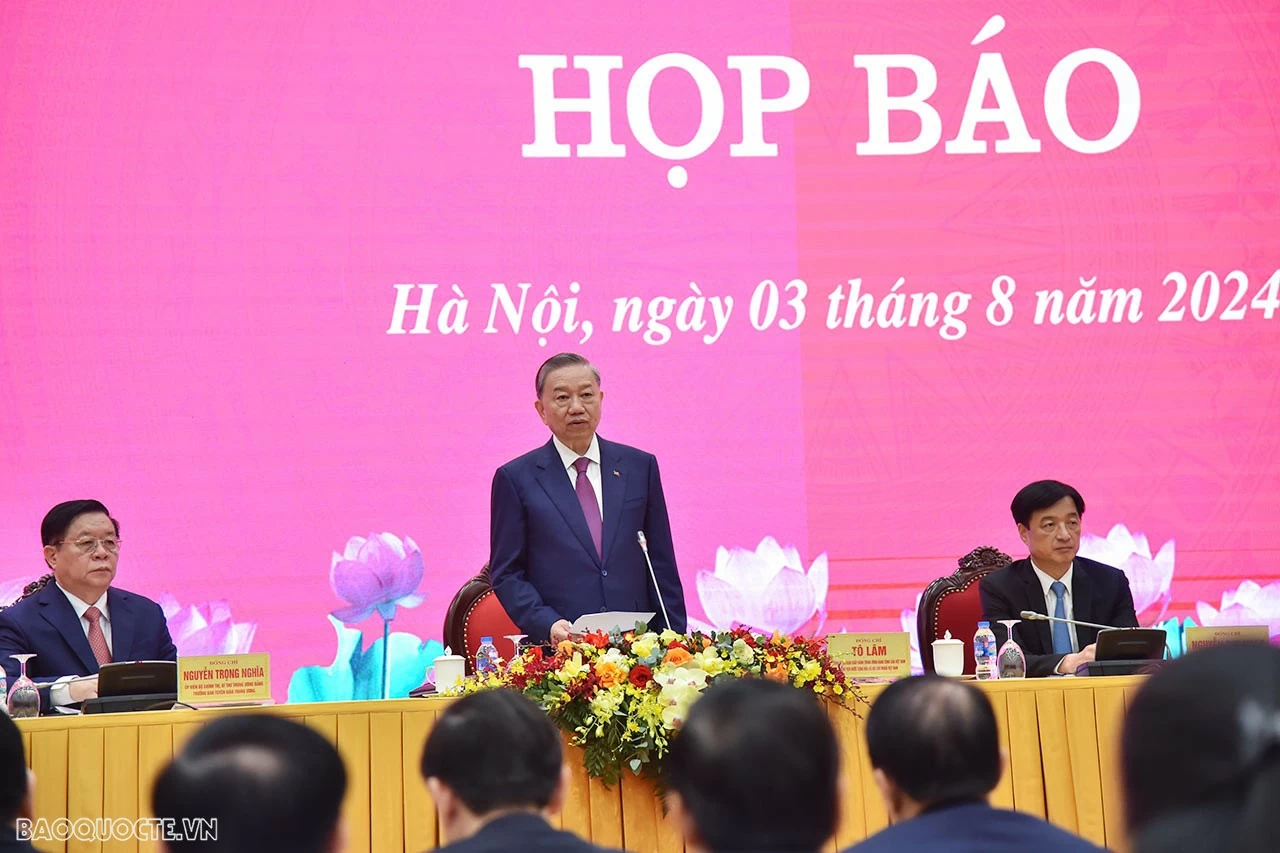
Vietnam's proactive foreign policy helps shape the country's future: Indian politician
Latest
 |
| Party General Secretary and State President To Lam answers questions from domestic and foreign journalists. (Photo: Tuấn Anh) |
Given the increasingly complex global context, Party General Secretary and President To Lam's emphasis on five priorities of Vietnam's foreign policy, including the continued elevation of multilateral diplomacy and the promotion of Vietnam's role as an active and responsible member of the international community, shows the country's important commitment to enhancing global engagement.
The statement was made by G. Devarajan, General Secretary of the All India Forward Bloc (AIFB), in an interview with the Vietnam News Agency's correspondents in New Delhi.
According to Devarajan, the priorities set by General Secretary and President Lam are closely aligned with Vietnam's long-term national interests, elaborating that strengthening multilateral diplomacy and promoting an active role in the international community will boost the country's economic prospects by attracting foreign investment, enhancing trade partnerships, and accessing new markets.
He went on to say that it reflects a progressive approach to Vietnam’s foreign policy. By prioritising multilateral engagement, Vietnam can enhance its global standing, protect its national interests and contribute to regional stability. This approach not only enhances Vietnam’s influence but also allows the country to protect its national interests within cooperation frameworks.
Strengthening multilateral diplomacy also provides Vietnam with a platform to promote its values, including respect for international law, sovereignty, and territorial integrity, especially in the context of tensions in the East Sea.
The AIFB General Secretary believed that General Secretary and President Lam's call for Vietnam to become an active and responsible member of the international community reflects a broader vision of the country's role in the global arena. This view underscores the country's commitment to adhering to international norms and contributing to global governance.
However, addressing the challenges posed by geopolitical dynamics will require a cautious diplomatic policy and a commitment to collective action. Devarajan emphasised that Vietnam's proactive foreign policy will play a crucial role in shaping the country's future as an influential and resilient nation in the international arena.
The AIFB General Secretary also commended General Secretary and President Lam's affirmation of continuing to intensify the fight against corruption and negative phenomena under the the motto of no off-limits zones, no exceptions, no privileges, no matter who.
According to him, the ongoing anti-corruption efforts will play a significant role in shaping Vietnam's future, contributing to building a more transparent, accountable, and equitable society.
Devarajan expressed his confidence that the Communist Party of Vietnam (CPV), under the leadership of General Secretary To Lam, will overcome any challenges and record comprehensive development in line with the aspirations of the people, gain international acclaim, and foster stronger relations with other countries and like-minded political parties.













